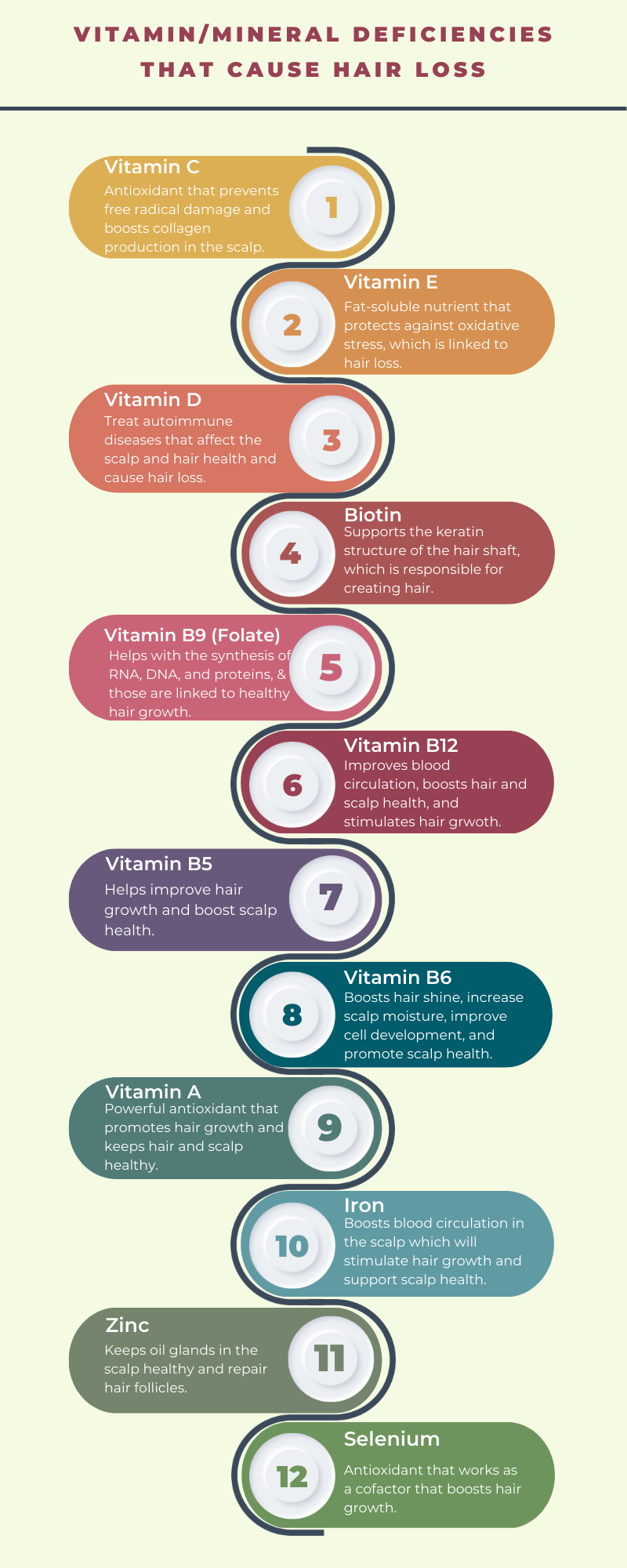Vitamins and minerals are essential for hair health and growth. They help boost scalp health, strengthen hair follicles, and stimulate healthy hair growth.
When it comes to hair loss, specific vitamins & minerals could be responsible for causing those hair problems.
Now, the question is; which vitamin deficiency causes hair loss? In this article, I will include the top vitamins that can boost hair growth and prevent hair loss, what causes vitamin deficiency, how to avoid this problem, which minerals can help, and more FAQs…
Let’s get started…
Table of Contents
Key Takeaways
- Having low levels of vitamins B, A, C, E, & D could lead to hair shedding, breakage, brittleness, and increase scalp issues.
- An unhealthy diet, blood loss, alcohol, medications, smoking, health problems, and not eating enough could lead to a vitamin deficiency.
- To fix a vitamin deficiency, eat more healthy meals, sleep enough daily, take supplements if you need to, and talk to a doctor.
- Some minerals including zinc, iron, copper, and selenium help with hair health and can boost hair growth effectively.
What Vitamin Deficiency Causes Hair Loss?
1- B Vitamins
Biotin
Vitamin B7, also known as biotin, can help support the keratin structure of the hair shaft, which is responsible for forming hair.
A study found that low levels of biotin could cause hair loss. Another study showed that taking biotin supplements whether you have biotin deficiency or not could help reduce hair loss.
So biotin could stimulate hair growth, prevent hair shedding, reduce thinning, and treat bald spots. But more studies are needed to support the evidence.
You can find biotin in eggs, salmon, apples, plain yogurt, almonds, milk, beef liver, pork, and whole-wheat pastries.
Related: What Is Better For Thinning Hair Biotin Or Collagen?
Vitamin B9 (Folate)
Folic acid, also known as vitamin B9 or folate, helps with the synthesis of RNA, DNA, and proteins, and those are contributed to healthy hair regeneration. It helps maintain healthy hair and scalp which will promote hair growth.
A study found that folate deficiency is linked to female pattern baldness and telogen effluvium. You can find this vitamin in leafy greens, legumes, and fruits.
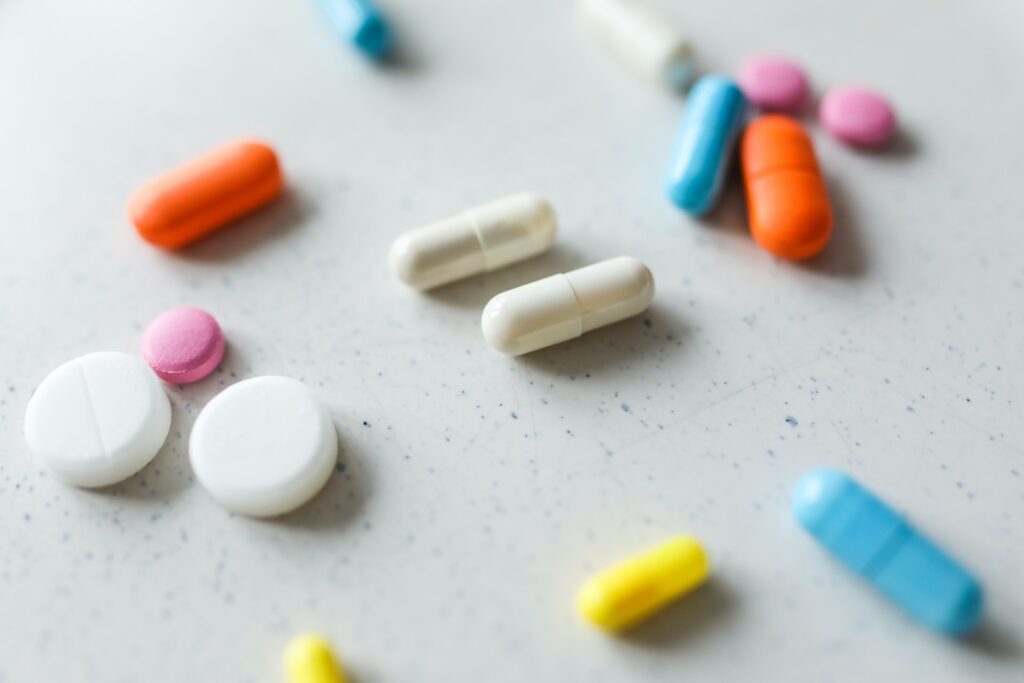
Vitamin B12
Wondering which vitamin deficiency causes hair loss? Well, vitamin B12 could be the one to blame here. It’s linked to the synthesis of DNA and the production of red blood cells, which will improve blood circulation and in return, will boost hair and scalp health.
A study found that vitamin B12 deficiency is linked to hair loss, especially for those with telogen effluvium.
You can find this vitamin in eggs, beef liver, dairy products, and fortified cereals.
Vitamin B5
Pantothenic acid or vitamin B5 could help improve hair growth and boost scalp health. A study showed that low levels of vitamin B5 and inositol could worsen alopecia in mice.
You can find this vitamin in eggs, nuts, chicken, beef, potatoes, and dairy products.
Vitamin B6
This vitamin plays a major role in promoting protein, lipids, and glucose metabolism. Since your hair is made up of keratin (protein), vitamin B6 can help boost hair shine, increase scalp moisture, improve cell development, and promote scalp health which will help prevent hair loss.
You can find this vitamin in fish, cheese, spinach, whole grain cereals, and poultry.
2- Vitamin C
Low levels of vitamin C are linked to hair problems. It helps your body absorb iron, which is an essential mineral that promotes hair health and stimulates hair growth.
Iron deficiency could eventually lead to hair loss, brittleness, and weakness.
Also, vitamin C is a strong antioxidant that can prevent free radical damage and boost collagen production in the scalp. And this will help boost hair and scalp health and reduce hair loss problems.
Plus, it helps with wound healing and keeping the skin healthy and nourished.
This vitamin is water-soluble, meaning, your body can not restore it and you must consume foods that are rich in vitamin C daily.
You can find this vitamin in green and red bell peppers, citrus fruits, potatoes, dark leafy greens, spinach, broccoli, and brussels sprouts.
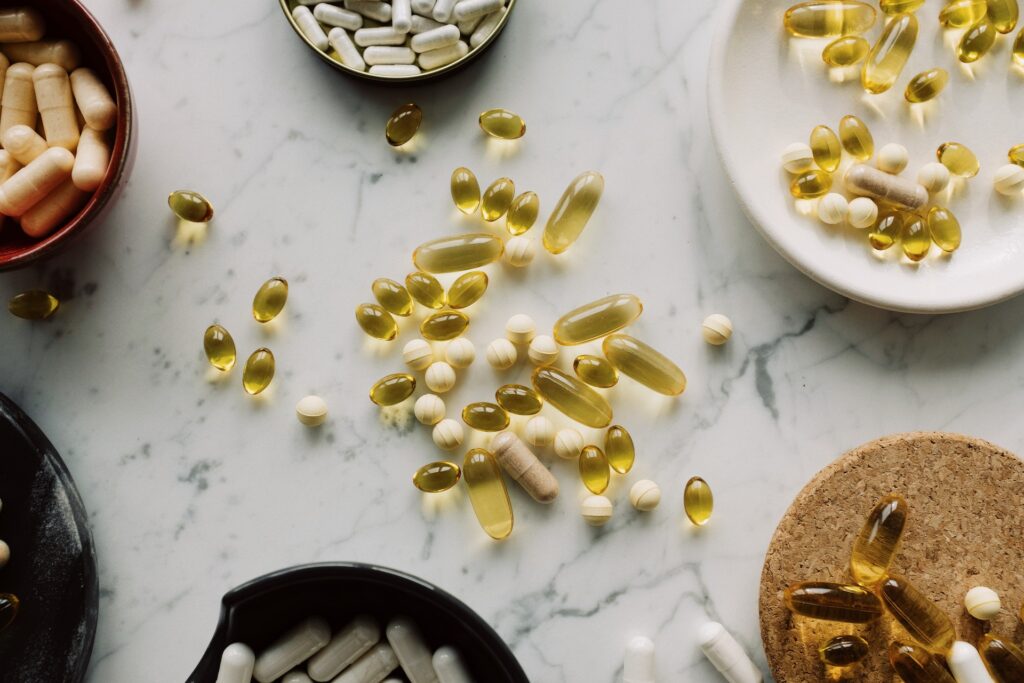
3- Vitamin E
Vitamin E is a fat-soluble nutrient that is found naturally in many foods including nuts, leafy greens, vegetable oils, and sunflower seeds. It has antioxidant properties that protect the scalp and hair against oxidative stress, which is linked to hair damage or loss.
Plus, vitamin E helps deliver oxygen supply to tissues throughout the body and boosts blood circulation, which is essential for scalp and hair health.
A small study found that vitamin E supplements could help people with alopecia or thinning hair.
Another study showed that people with autoimmune diseases like psoriasis, alopecia areata, or vitiligo have low levels of vitamin E in their bodies.
This means vitamin E deficiency could cause hair loss, impact scalp health, and make your hair thin. But we still need more studies to support the findings.
4- Vitamin D
This essential vitamin plays a major role in boosting the immune system response. And this will in return help treat autoimmune diseases that affect the scalp and hair health and cause hair loss including androgenetic alopecia and alopecia areata.
A study found that balanced levels of vitamin D can help with hair growth and increase hair follicles’ health in people with alopecia.
Another study showed that low vitamin D levels could affect hair follicle growth and cause hair loss.
Plus, people with alopecia areata are more likely to be vitamin D deficient. Additionally, Low levels of this vitamin are linked to male and female pattern stress-related hair loss.
This vitamin is naturally found in eggs, liver, salmon, avocados, chia seeds, and nuts.
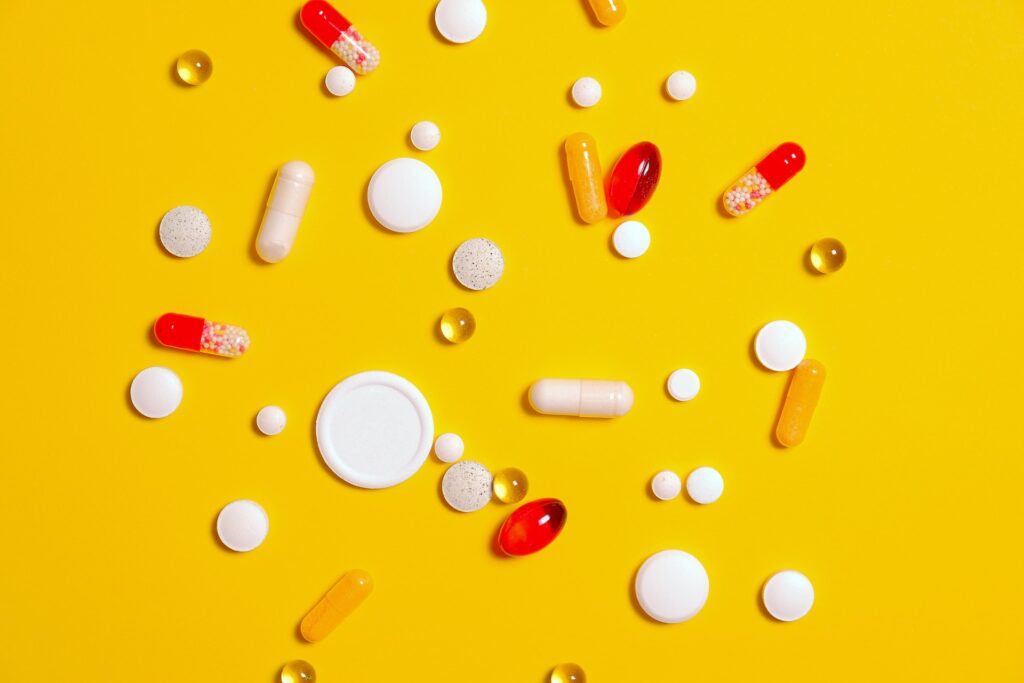
5- Vitamin A
Wanna know which vitamin deficiency causes hair loss? A study found that people with alopecia areata, which is a disease where the immune system attack hair follicles and cause hair shedding, have low levels of vitamin A and other antioxidants.
Another study showed that taking vitamin A supplements help keep existing hair strong and lowers the number of hairs in the telogen phase ( the resting phase before shedding).
It’s a super powerful antioxidant that can promote hair growth and protect hair and scalp health.
You can find this vitamin naturally in sweet potatoes, carrots, fish, meat, chicken liver, dairy products, butter, pumpkin, and squash.
But keep in mind overconsumption of vitamin A could lead to hair loss. It over-stimulates hair follicles, which will make the hair on your head reaches the shedding phase prematurely.
And this causes hair to become thinner and your body won’t be able to keep up and grow new hair fast enough.
So precise doses of vitamin A are essential to finding the right balance between hair shedding and growth.
What Causes Vitamin Deficiencies?
Many factors could contribute to vitamin deficiencies including:
- Poor diet or eating unhealthy meals.
- Eating fast or processed food daily.
- Not eating enough balanced meals each day.
- Certain medications.
- Drinking too much alcohol.
- A disease or health condition that prevents nutrient absorption.
- Smoking.
- Losing much blood due to injury or disease.
How To Prevent Vitamin Deficiencies?
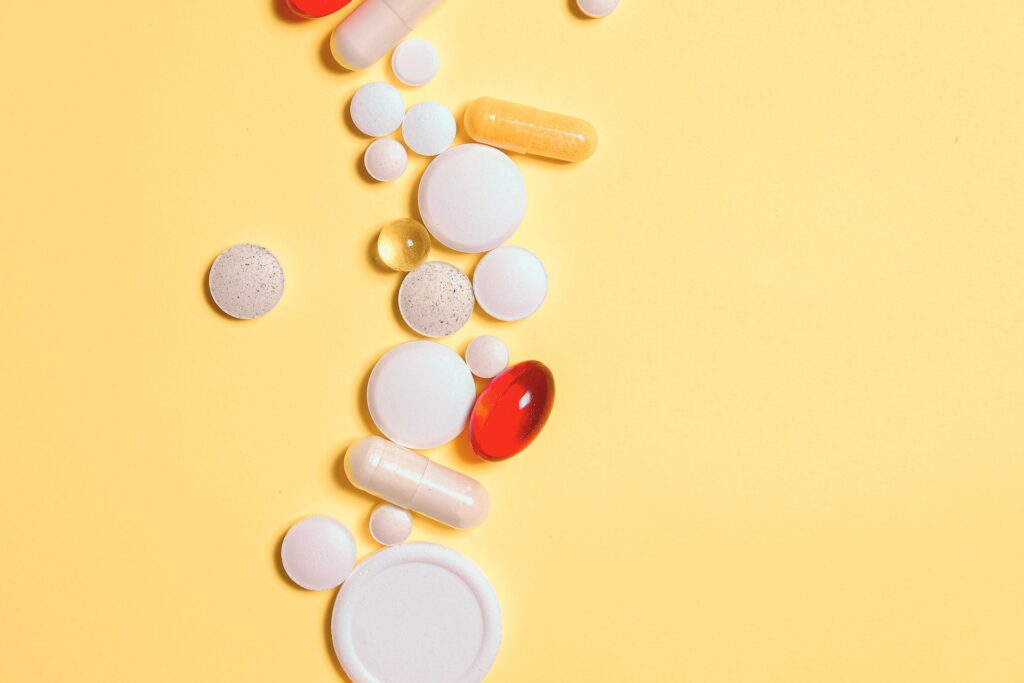
Consume Balanced Meals
The most effective way to fix a vitamin deficiency is to eat balanced nutritious meals daily that are full of vitamins, minerals, and antioxidants.
Also, make sure to maintain a healthy weight and avoid losing weight rapidly as this could lead to vitamin and mineral deficiencies.
So eat more vegetables, leafy greens, protein, whole grains, nuts, healthy fats, and fruits. Those healthy foods are full of nutrients that help boost scalp and hair health and reverse thinning hair.
Take Supplements
Are you wondering which vitamin deficiency causes hair loss? Studies found that nutritional supplements could play a major role in treating hair loss and stress-induced hair loss. They could also help with regrowing hair on bald spots.
Additionally, using haircare products like shampoos, conditioners, hair masks, or serums that contain vitamins and minerals can help nourish hair, keep the scalp healthy, increase shine, and boost hair growth.
Sleep Well
When you don’t sleep enough every day, your body will release cortisol (the stress hormone), which will keep you stressed and anxious.
This will decrease blood flow and transfer nutrients to your vital organs, neglecting your hair follicles and this will lead to stress-related hair loss.
Related: How To Regain Hair Loss From Stress In 6 Easy Ways
So it’s essential to sleep at least 7-9 hours each night to keep your skin and hair glowing and leave your body relaxed.
Avoid Overdosing On Vitamins
Vitamin supplements are supposed to boost hair growth but taking too much of them could cause hair loss and worsen the condition.
So keep in mind to talk to a doctor before taking any supplements.
Regular Checkups
Getting regular checkups can help detect if you have a vitamin or mineral deficiency quickly, which will fix the problem ASAP.
So make sure to check with a healthcare provider every 3-6 months to maintain a healthy body from the inside out.
Can You Overdose On Vitamins?
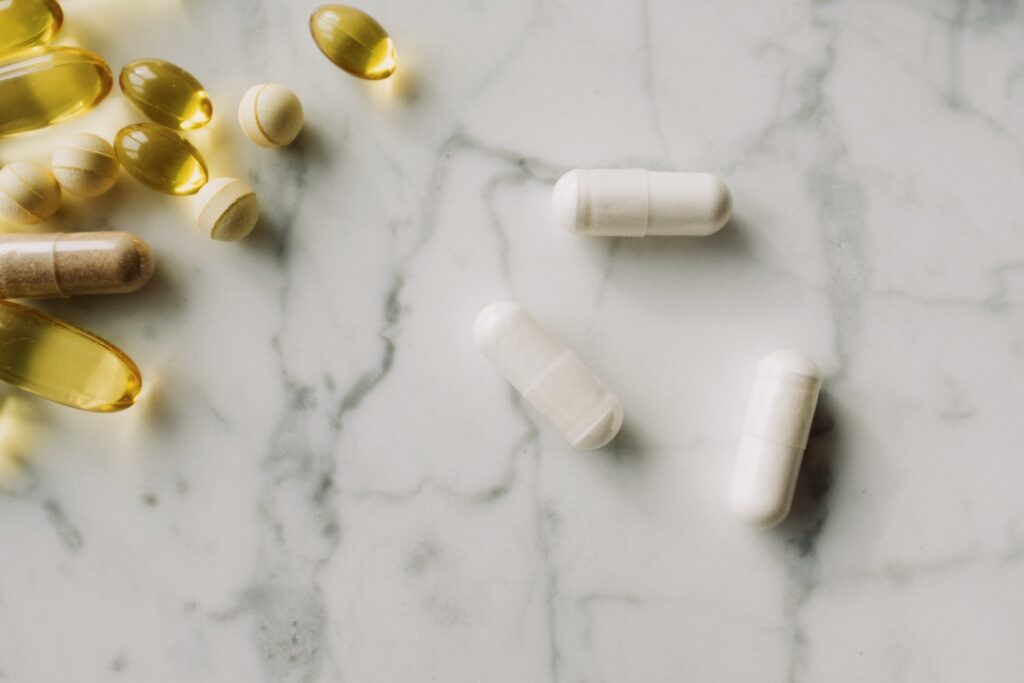
Yes. Taking too many vitamins could cause hypervitaminosis, which is a health issue that happens when your body has high levels of a certain vitamin.
Overdosing on vitamins could lead to some symptoms including hair loss, nausea, and stomachache.
A study showed that taking too much vitamin A, vitamin E, and selenium could lead to hair shedding.
That’s why it’s highly recommended to talk to a healthcare provider before taking any supplements.
Which Minerals Help With Hair Growth?
Zinc
Zinc is essential for protein synthesis, immune system function, cell growth, and cellular metabolism. It helps keeps oil glands in the scalp healthy and repair hair follicles.
Also, zinc is vital for DNA and RNA and helps regulate hormone levels. So zinc deficiency can lead to hair loss and brittle nails.
A study suggests that low zinc levels are linked to hair loss and zinc supplements can help with hair growth.
You can find zinc in pumpkin seeds, soy products, liver, cheddar cheese, and sunflower seeds.
Iron
This mineral plays an essential role in making hemoglobin, which is a protein, that carries oxygen to cells throughout the body including hair follicles.
And this helps boost blood circulation in the scalp and transfer oxygen properly which will stimulate hair growth and support scalp health.
When iron levels are low in the body, hair follicles won’t be able to get essential nutrients and oxygen. So iron deficiency could lead to hair loss, split ends, and dullness.
A study found that low levels of iron in hair follicles could affect hair health and growth.
Another study showed that iron deficiency may worsen or trigger male-pattern baldness and lead to female-pattern baldness. Also, low levels of iron are linked to other hair loss types including telogen effluvium.
Keep in mind vitamin C promotes iron absorption in the intestines which will make your body benefits the most from it.
Usually, vegans, vegetarians, or women with heavy periods are at higher risk for iron deficiency.
This mineral is naturally found in salmon, pork, dried fruits, peas, meat, poultry, spinach, and fortified cereals.
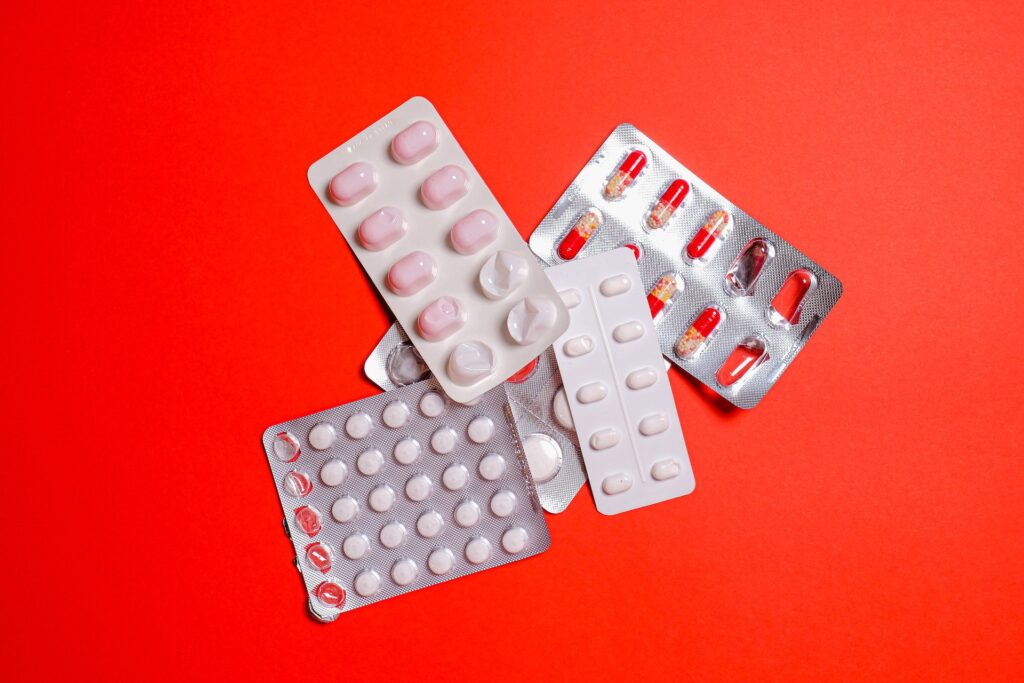
Selenium
Low selenium levels could lead to hair loss as it works as a cofactor that boosts hair growth.
This mineral has antioxidant properties so it can help protect against free radical damage and keep the scalp and hair healthy.
It helps also maintain hormonal balance and boosts the production of thyroid hormones which will regulate hair growth. Plus, selenium aids in boosting the immune system’s function.
You can find selenium in chicken, eggs, spinach, coconut, and tuna.
But be careful! too much selenium could lead to hair loss, brittle nails, and other skin problems.
Copper
This mineral is essential for iron absorption which helps boost red blood cells and circulation. And this promotes hair cell health and stimulates hair growth.
It also aids immune function which will keep the body healthy including the scalp.
Plus, copper helps increase melanin production, and this will maintain hair and eye color. Copper deficiency could lead to premature hair greying.
Which Vitamin Deficiency Causes Hair Loss – Infographic:
FAQs:
How Do You Know If You Are Losing Hair Due To Vitamin Deficiency?
Vitamin deficiencies lead to thinning hair, split ends, bald spots, and brittleness. Those are the most common symptoms that can tell whether you have a vitamin deficiency.
What Is The Most Important Vitamin For Hair Loss?
Biotin, vitamin B7, plays an essential role in boosting hair health and increasing hair growth. Plus, a study found that biotin deficiency could cause hair loss.
Which Nutrients Help To Stop Hair Fall?
Vitamins A, D, C, & B, iron, selenium, zinc, fatty acids, and protein could help with hair fall. So, if you have a deficiency in any of these nutrients, chances are, your hair will suffer and you will start to lose some strands.
What Illness Cause Hair Loss In Females?
Anemia, thyroid disorders, autoimmune diseases, pregnancy, polycystic ovary syndrome (PCOS), psoriasis, or dermatitis could lead to hair loss in females. It’s essential to consult a doctor if you have any of these conditions.
The Bottom Line
If you’re wondering Which Vitamin Deficiency Causes Hair Loss, there are many vitamins including Vitamins B, A, C, D, & E could be the reason why your hair is falling.
It’s best to talk to a healthcare provider if you think you have a vitamin or mineral deficiency so he/she would help you find what suits you the most to regain hair health.
Featured Image Source: Pexels.com

